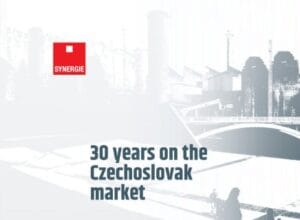The Journey from Family Business to Professional Organization


Christophe, in your career, you’ve had the opportunity to work closely with family businesses. What unique challenges do they face, and how do they successfully evolve into more structured organizations?
Christophe Beaujard: Yes, I’ve had several opportunities to collaborate with family businesses. My first encounter was back in 2008 with a private investment group that included family shareholders. Since then, I’ve worked with various clients in my HR roles, many of whom were family-owned businesses. These experiences taught me that there’s a significant difference between companies that have transitioned into formal organizations and those that still operate primarily as families.
The critical moment for any family business comes when they can dissociate between *know-how* and *competence*.
Could you explain that distinction a bit more?
Christophe: Know-how often comes from the business founder—someone’s grandfather, perhaps—who started the company and passed on their knowledge through generations. This know-how is a family legacy and represents the heart of the business. It’s part of the company’s DNA, the values that will be passed down to future generations and new employees.
However, just having know-how doesn’t necessarily mean you have the skills required to develop or operate the business effectively in today’s complex environment. That’s where competence comes into play. Recognizing this gap is crucial for growth, and it’s often where external expertise becomes necessary.
It sounds like family businesses might be reluctant to bring in external people. Why is that?
Christophe: Exactly. Hiring someone from outside the family is often seen as a big risk. It’s like welcoming a new member into the family, which can be uncomfortable. Family businesses sometimes feel that keeping operations under family control ensures loyalty and continuity. They may believe they don’t need additional expertise because they can manage internally. This reluctance might also stem from financial constraints or a belief that they can handle every aspect of the business in-house.
What’s the downside of that approach?
Christophe: One of the biggest mistakes I’ve seen is assuming that certain tasks—like marketing strategy, rebranding, or public relations—can be handled internally by the most creative family member, regardless of their actual qualifications. Just because someone is part of the family doesn’t mean they’re automatically the best fit for a particular role.
Let me give you an example. Marketing is often something family businesses believe they can manage without specialized knowledge. But unless the family member has the necessary education or relevant external experience, it’s risky. A professional marketer with a fresh perspective can bring new ideas and ensure that the company stays competitive.
So, bringing in external expertise can be a positive step?
Christophe: Absolutely. Hiring an outsider isn’t about replacing family members or risking the family’s legacy. It’s about recognizing that you need specific expertise to grow the business. This is what transforms a family-run operation into a true organization.
By onboarding external professionals, family businesses gain specialized skills, access to new ideas, and increase diversity within the team. External team members challenge the status quo, helping the business identify its position in the market and highlighting areas for improvement. It’s similar to conducting a SWOT analysis: you need external insights to fully understand your strengths, weaknesses, opportunities, and threats.
And what about recruitment? Is that also something family businesses tend to keep in-house?
Christophe: Yes, recruitment is another area where family businesses often prefer to keep control, believing it guarantees hiring the “right” person. But by doing this, they’re typically choosing someone who fits the family dynamic, rather than someone who brings the skills and experience the organization truly needs.
When someone from outside the family, such as an external partner or recruiter, is responsible for hiring, they can bring fresh talent, diverse experiences, and new perspectives. This diversity is critical for growth. New team members, especially those who have worked in different environments, challenge the family’s routines and help propel the business forward.
So, how can family businesses embrace this transition?
Christophe: It starts when the family is ready to open up and understand that external team members aren’t a threat to the family’s legacy. They are there to complement and enhance it. The family must trust external professionals with roles that have traditionally been reserved for family members, allowing them to bring in the expertise needed for long-term success.
Ultimately, the transformation from a family setup to a structured organization involves moving from a family legacy to a business legacy. That’s the key to succeeding in today’s competitive environment.
That’s very insightful, Christophe. Will you be discussing these topics further in the near future?
Christophe: Yes, definitely. We’ll be diving into these challenges and more at the Family Business Congress on September 19-20, held at Hotel Château Bela. It’s going to be a great opportunity to explore how family businesses can successfully make this transition.








